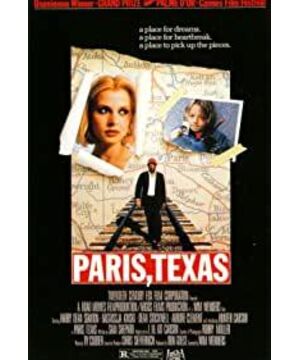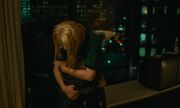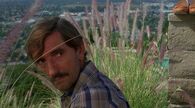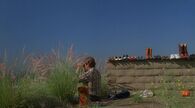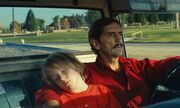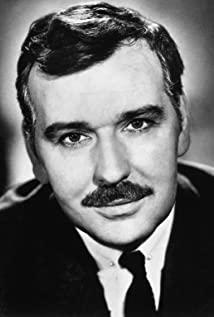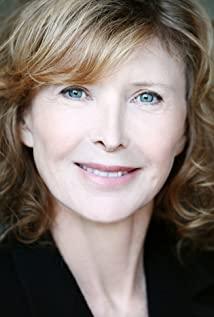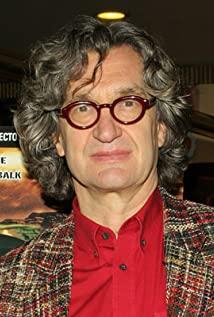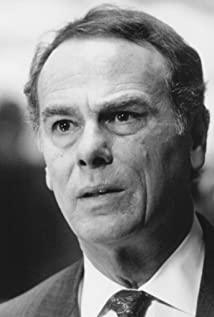Every viewing is an expansion, and every viewing is also a forgetting.
For this text, I am willing to use several of Gibran's names to write my conceptual world, as if under my writing, I am the director of this text, showing another invisible place. I have always believed that the spiritual resonance of directors and writers lies in "naming" and "extension", which implies and instructs, and also creates another dimension, allowing readers and viewers to construct their own meaning. Just like my first sentence at the beginning, "Every viewing is an expansion, and every viewing is also a forgetting." Is that clear? It doesn't seem to; didn't make it clear? I've said too much...
I don't have a good sense of history, so I can't interpret the film from this perspective, but if I interpret the film from a historical perspective, will it have another meaning? Once one considers that Wenders was born in West Germany in 1949, does his upbringing play a role in his films? The film titled "PARIS, TEXAS" has a sequential order, that is, the French Revolution comes first, and the American Revolution follows. The former is the source of the cry of "liberty, equality, and fraternity"; the latter is the practice of "human rights, freedom, and democracy." The place where the two overlap is "freedom"—a name that seems both real and illusory. Live elsewhere? Or freedom in a foreign land? This is about the pursuit and thinking of the protagonist, which is most obvious at the beginning and end.
Two ways of asking (what is this? What is this?) may be the two propositions of life: what is freedom? "Yes", as an intermediary, plays the role of limitation and norm. This question is a historical repetition, because the "what" before "yes" is here a prior or transcendental idea, "what" exists before "freedom", and "freedom" is only derived from the many "whats" ", you can select one or several synthetic definitions. What matters here is not the attribute of "freedom", but the attribute of "what" (single or multiple possibilities). 2. What is freedom? As a fresh creature, "freedom" cannot judge its essence and attributes, that is, it cannot make a model or formula from the historical experience and the existing situation, then this is the extension of the possibility of "freedom", It is the opening of a new world.
sand and foam
In the vast and vast sandy land, Tavis walked alone. The appearance of the goshawk is also regarded by many people as the incarnation of Tavis' loneliness, while I think the appearance of the goshawk is the possibility of carrion. When there was only a sip of water left in Tavis's hand, and the eagle beside him stared at him, Tavi should have seen the approach of physical death, but he was not afraid, without fear, there is no need to pray, he does not need God's Bless you, he's just on the way—an attitude and action that seeks certainty for uncertainty. He might be looking for a small Texas town called Paris, or he might be looking for the origin of his life, because his mother told him that was where she and her father had sex for the first time.
Does God exist? If it exists, we only need to live according to God's instructions and arrangements. But what if God doesn't exist? (What a terrible "if") life will fall into infinite possibilities (nothing is also one of the possibilities), instead of a fatalistic helplessness. So whether God exists or not, what are people who exist on earth seeking between life and death? This is probably the vague proposition the protagonist wants to tell us. Fromm pointed out in "Escape from Freedom" that "freedom" looks beautiful, but it is very painful to practice, so that human beings are not looking for freedom in essence, but for exciting satisfaction.
At the beginning, the director borrowed the shop owner to say something like "Do you know which side of the border you are" (do you know which side of the border you are standing on), which implies a questioning of the protagonist's diligent pursuit. This sentence is vague, just like the sentence I started with. We live in a world where everything is on the edge: life and death, good and evil, love and hate, civility and savagery, nobility and lowliness, loyalty and betrayal... We seem to live in the center, even our lives seem to have a center , but who can realize the edge of their own life? Are there limits to freedom? What is the edge of freedom? On which side of the edge of freedom do those who seek freedom stand?
Love and Thought
Is Tavis painful? It doesn't seem to be, but in his eyes there is always a bit of daze, whether walking or watching. He felt remorse and guilt for his woman and child, but he didn't feel pain for the freedom he sought, because in the end he returned the child to the woman and left alone, and what he wanted was not a worldly reunion. What the director is discussing here is not about the good and evil of human nature (such as "The Shawshank Redemption" or "Schindler's List"), but only the questioning of "stable" and "belonging", which is a presentation of a possibility. What is human nature? I just listed so many boundaries and edges just to illustrate that human nature is a vague possibility that cannot be defined with certainty.
As Tavis walked across the flyover with his freedom-seeking binoculars, he heard some words from the madman: "You will surely be picked up when you are unprepared" "They will invade in your sleep" "They will be in the heat" Take you away in a water bath" "They'll drag you out of your beautiful sports car" "There's no place you can call a safe zone" "You'll all be handed out and never turn over, this is exile without end" If you think this is interesting, I have some thoughts for you here." "Don't look at me obscene, but trust me, I know what I'm talking about" He stood beside the lunatic for about two minutes, then Moving on, it seems to be a fragment that does not know where it came from or where it is going.
Through my viewing of this film, I want to make such a judgment: human nature is inertia, and the "freedom" explained by human nature is a kind of courage to constantly overcome inertia. Like "how is it possible for beings to exist", does "beings exist"? In terms of "being of being", what is "being"? Are there multiple possibilities for change? Is it a manifestation of existence that escapes from one kind of nothingness into another? Is it a trace of life left over by the passage of time? As for the "existence" spoken of, it should only be "existence of beings". In Heidegger's words, "existence gathers all beings and makes beings become beings." Is the film of
tears and laughter a
What about a voyeuristic look into the lives of others? I guess to some extent yes.
Zhang Zhihua wrote in Yantai Nanshan College
on July 1, 2012
View more about Paris, Texas reviews


